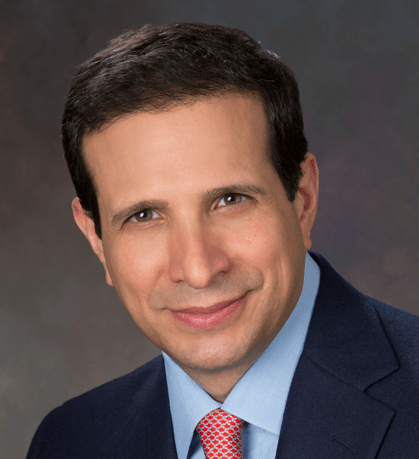By Douglas J. Swirsky

When it comes to treating cancer, chemotherapy and immunotherapy have proven to be powerful within certain limits. Take immunotherapy: Despite its great promise, it doesn’t help every patient to which it is given—and its track record of success is uneven among different cancers.
Keenly aware of this disparity in outcomes—and with an eye toward boosting the effectiveness of both chemotherapy and immunotherapy—some researchers are paying close attention to specific compounds that are not only active against the toughest cancers but are also highly selective. This means that they have the ability to destroy tumor cells while leaving healthy cells alone, offering a potentially significant advance in the realm of cancer treatment.
Rexahn Pharmaceuticals is studying two such compounds: RX-3117 in pancreatic cancer and advanced bladder cancer, and RX-5902 in triple negative breast cancer. The hope is that these compounds—administered as a monotherapy or in combination with either chemotherapy or immunotherapy—can offer a “one-two punch” that can do a better job of knocking these cancers out.
Each of Rexahn’s two compounds attacks cancer cells in a unique and interesting way. For example, RX-3117, which has received Orphan Drug designation for the treatment of pancreatic cancer, is activated once it arrives within a tumor cell by an enzyme, Uridine Cytidine Kinase, or ‘UCK2’, that is overexpressed in tumors but limited in normal tissue. The compound then kills the tumor cell after invading its genetic material. Rexahn recently completed a Phase 2a study of RX-3117 as monotherapy in patients with pancreatic cancer; among 43 patients in the final analysis, one showed a reduction of nearly one-third in total tumor volume after only one cycle of treatment.
Further encouraging news came from a separate Phase 2a study, focused on RX-3117 in combination with Abraxane® in newly diagnosed metastatic pancreatic patients. According to data recently presented at the 5th NCI Pancreatic Cancer Symposium, the combination of RX-3117 and Abraxane® in these patients appeared to be safe and well-tolerated. Among the first 14 evaluable patients, one patient showed a complete response to treatment; there were three partial responses and eight patients with stable disease. Rexahn plans to report the final data from this study in 2019.
Meanwhile, in bladder cancer, another Phase 2a monotherapy study has reported that RX-3117 was well-tolerated among 24 patients, one of whom showed a complete response. Four additional patients had partial tumor reductions and six others showed disease stabilization for greater than four months.
What about Rexahn’s other compound, RX-5902? It works its magic against a different cancer protein that, once again, is common in cancer cells but not in normal tissue.
At the American Society of Clinical Oncology 2018 meeting, Rexahn reported initial data from a Phase 2a monotherapy study in metastatic triple negative breast cancer (TNBC), showing that RX-5902 was safe and well-tolerated in patients who had undergone extensive prior treatment and who had failed two or more of those earlier therapies. Preliminary data showed encouraging responses with two patients showing progression free survival of greater than 200 days. Notably, one subject—a 78-year-old woman with malignant neoplasm of the right breast who had progressed on all of her previous therapies (capecitabine, nab-paclitaxel, pembrolizumab and erubulin), showed an overall tumor reduction of more than 18 percent. Rexahn plans to announce an update to this trial in the fourth quarter of 2018.
Rexahn plans to evaluate RX-5902 in combination with immunotherapy. In August 2018, the company started collaborating with Merck to evaluate the combination of RX-5902 and Merck’s immunotherapy, pembrolizumab, in a Phase 2 study in patients with metastatic TNBC. The aim is to evaluate the combination of RX-5902 and pembrolizumab in patients with metastatic TNBC whose disease has progressed following at least one prior treatment.
Results from these clinical studies involving RX-3117 and RX-5902, and others to come, may provide a better perspective on the potential of these tumor-destroying compounds to augment chemotherapy and immunotherapy. “Small and selective” could turn out to be the traits that mark the next step in the treatment of a slew of traditionally hard-to-treat cancers.
Douglas J. Swirsky is President and CEO of Rexahn Pharmaceuticals, a clinical-stage biopharmaceutical company dedicated to developing novel, targeted therapeutics for the treatment of cancer.
Throughout the year, our writers feature fresh, in-depth, and relevant information for our audience of 40,000+ healthcare leaders and professionals. As a healthcare business publication, we cover and cherish our relationship with the entire health care industry including administrators, nurses, physicians, physical therapists, pharmacists, and more. We cover a broad spectrum from hospitals to medical offices to outpatient services to eye surgery centers to university settings. We focus on rehabilitation, nursing homes, home care, hospice as well as men’s health, women’s heath, and pediatrics.







